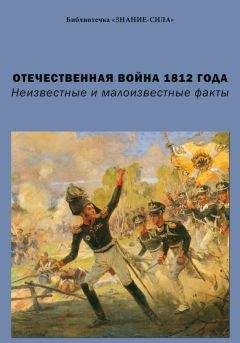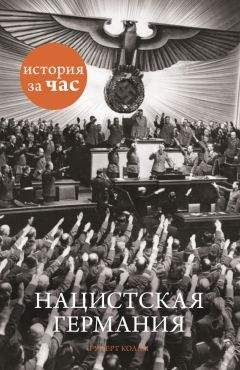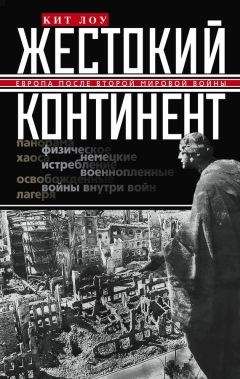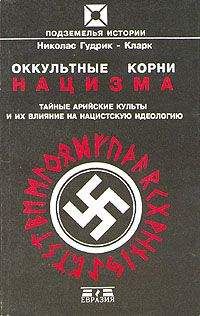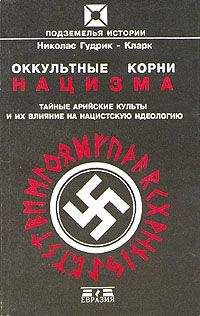Гвидо Препарата - ГИТЛЕР, Inc.

Скачивание начинается... Если скачивание не началось автоматически, пожалуйста нажмите на эту ссылку.
Жалоба
Напишите нам, и мы в срочном порядке примем меры.
Описание книги "ГИТЛЕР, Inc."
Описание и краткое содержание "ГИТЛЕР, Inc." читать бесплатно онлайн.
Как Британия и США создавали Третий рейх
Нацистский режим для многих из наших соотечественников — это Вторая мировая война. Для Европы — эпоха. В коллективном представлении Запада не существует ничего худшего, нежели нацизм. Не было больших святотатств, большей жестокости, бесчеловечности, большего обмана, чем те, которые совершил невиданный режим, властвовавший в Центральной Европе на протяжении двенадцати лет. До сих пор не иссякает мощный поток книг, статей и фильмов, показывающих суть нацизма. Будучи профессиональным экономистом, Гвидо Джакомо Препарата почти 10 лет изучал нацистский режим. Как такое зло могло явиться на свет? Взгляды автора на историю Европы существенно отличаются от известных широкой публике.
Последовавшее за поражением нацизма воцарение Pax Americana («Мир американский») имело, по мнению Г. Препараты, подготовленную десятилетиями почву, ставило конкретные цели и очень дорого обошлось Европе. Нацисты ни при каких обстоятельствах не могли стать порождением слепого случая. Писатель показывает, что на протяжении 15 лет (1919-33) англо-саксонская элита активно вмешивалась в германскую политику, имея осознанное намерение создать движение, каковое можно было бы впоследствии использовать как пешку в большой геополитической интриге.
История, рассказанная в этой книге, — это, по сути, история Британской империи, которая, напуганная ростом могущества юного Германского рейха, начала разрабатывать и приводить в исполнение секретный план стратегического окружения Евразийского массива. Главная цель этого масштабного окружения — уничтожить то, что сможет угрожать самому существованию Британской империи в наступающем столетии. Придя к этому пониманию, Британия начала кампанию, имевшую целью расчленение Евразии…
Перевод с английского А. Анваера
11. Hjalmar Schacht, 1933: Wie eine Demokratie stirbt (Dusseldorf: Econ-Verlag, 1968), p. 88.
12. Peter Alien, The Windsor Secret New Revelations of the Nazi Connections
(New York: Stein 8c Day Publishers, 1984), p. 98.
13. Klaus Fischer, Nazi Germany. A New History (New York: Continuum,
1996), p. 443.
14. Dan P. Silverman, Hitler's Economy. Nazi Work Creation Programs,
1933-1936 (Cambridge, MA: Harvard University Press, 1998), pp. 146, 243.
15. F. W. Henning, 'Die zeitliche Einordnung der Uberwindung der Wirtschaftskrise in Deutschland in Harald Winkel (ed.)', Finanz- und Wirschaftspolititische Fragen der Zwischenkriegszeit, Band 73 (Berlin: Duncker & Humblot, 1973).
16. Pierre Ay^oberry, The Social History of the Third Reich, 1933-1945 (New York: The New Press, 1999), p. 158.
17. John Corn well, Hitler's Pope. The Secret History of Pius XII (New York: Viking, 1999), p. 328.
18. John Weitz, Hitler's Banker: Hjalmar Horace Greeley Schacht (Boston: Little,
Brown & Company, 1997), p. 243.
19. Согласно сообщению американского военного атташе в Лондоне, утверждавшего, что он говорил с Гессом после прилёта последнего в Англию, заместитель фюрера, предположительно, признался освидетельствовавшему его британскому психиатру, что нацисты готовы начать истребление евреев [Louis Kilzer, Churchill's deception.
The Dark Secret that Destroyed Germany (New York: Simon & Schuster,
1994), pp. 60-2]. Более того, автор — Альфред Смит — сообщает, что 13 мая 1941 года, всего через три дня после приземления Гесса, Черчилль направил памятную записку своему коллеге, Энтони Идену…
Записка заканчивалась следующими словами: «Подобно другим на
цистским лидерам, этот человек — потенциальный военный пре
ступник, он и его сподвижники могут быть объявлены вне закона
в конце войны. Его раскаяние здесь может пойти ему на пользу».
Смит задаёт вопрос: «Почему Черчилль пишет о Гессе, как о потен
циальном военном преступнике?.. «Преступления против челове
чества» и, в частности, холокост, не имели места вплоть до начала
операции «Барбаросса» в июне 1941 года, то есть в течение месяца
после полёта Гесса». Смит заключает: «Единственное умозаключе
ние, придающее смысл ремарке Черчилля, состоит в том, что он
знал о военных преступлениях, которые должны были совершить
ся в будущем» (Smith, Rudolf Hess, p. 341).
Избранная библиография
Adams Brown, William Jr. 1929. England and the New Gold Standard. 1919-1926. New Haven: Yale University Press.
Adams Brown, William Jr. 1940. The International Gold Standard Reinterpreted. 1914-1934. New York: National Bureau of Economic Research, Inc.
Aguado, Lago Gil. 2001. 'The Creditanstalt Crisis of 1931 and the Failure of the Austio-German Customs Union Project', Historical Journal Vol. 44, No. 1.
Aldcroft, Derek A. 1978. From Versailles to Wall Street, 1919-1929. New York: Penguin Books.
Alleau, Rene'. 1969. Hitler et les societes secretes. Enquete sur les sources occultes du nazisme. Paris: Editions Bernard Grasset.
Alien, Martin. 2004. The Hitler/Hess Deception. London: HarperCollins.
Alien, Peter. 1984. The Windsor Secret New Revelations of the Nazi Connections. New York: Stein 8c Day Publishers.
Alvi, Geminello. 1993. DelVestremo occidente. Ilsecolo americano in Eurapa. Stone economidie. Firenze: Marco Nardi Editore.
Angebert, Jean-Michel. 1974. The Occult and the Reich. The Mystical Origins Nazism andthe Search for the Holy Grail. New York: Macmillan Publishing [19711.
Armstrong, Hamilton F. 1971. Peace and Counterpeace. From Wilson to Hitler. New York: Harper 8c Row Publishers.
Arndt, H. W. 1944. The Economic Lessons of the Nineteen Thirties. London: Oxford UniversityPress.
Arnold, Percy. 1938. The Bankers of London. London: Hogarth Press.
Authier, D., and Barriot, J. 1981. La sinistra, comunista in Germania. Milano: La Salamandra[ 1976].
Aygoberry, Pierre. 1999. The Social History of the Third Reich, 1933-1945. New York: TheNew Press.
Balachandran, G. 1996. John Bullion's Empire: Britain's Gold Problem and India Between the Wars. Richmond. Surrey: Curzon Press.
Balderston, Theo. 1993. The Origins and Causes of the German Economic Crisis. Novemberl923 to May 1932. Berlin: Haude 8c Spener.
Balfour, Michael. 1972. The Kaiser and His Times. New York: W. W. Norton &Co.
Bank of England. Archives of the Bank of England.
Barkai, Avraham. 1990. Nazi Economics. Ideology, Theory and Policy. New-Haven: Yale University Press.
B'arsch, Claus-Ekkehard. 1998. Die politische Religion des NationaIsozialismиs. Muchen: Wilhelm Fink Verlag.
Beaverbrook, Lord. 1966. The Abdication of King Edward VIII. New York: Atheneum.
Beck, Earl. 1955. Verdict on Schacht: A Study in the Problem of Political Guilt. Tallahassee: Florida State University Berghahn Press.
Benoist-Mechin, I. 1966. Histoire de Гагтёе allemande. Paris: Editions Albin Michel.
Berghahn, Volker R. 1994. Imperial Germany, 1871-1914. Providence, RI: Berdhahn Press.
Bettelheim, Bruno. 1946. Leconomie allemande sous le nazisme: un aspect de la decadencedu capitalisme. Paris: Librairie Marcel Riviere et Cie.
Bloch, Michael. 1984. Operation Willi. The Plot to Kidnap the Duke of Windsor, July 1940. London: Weidenfeld and Nicolson.
Bopp, Karl R. 1939. Hjalmar Schacht: Central Banker. University of Missouri Studies.
Borkin, Joseph. 1978. The Crime and Punishment of I. G. Farben. New York: The Free Press.
Born, Karl Erich. 1967. Die deutsche Bankenkrise 1931, Finanzen und Politik. Munchen: R.Piper 8c Co. Verlag.
Boyle, Andrew. 1967. Montagu Norman. London: Cassell.
Bresciani-Turroni, Costantino. 1968. The Economics of Inflation. New York: Augustus M. Kelley [ 1931 ].
Broszat, Martin. 1987. Hitler and the Collapse of Weimar Germany. Leamington Spa: Berg [1984].
Bruce Lockart, R. H. 1933. British Agent. London: G. P. Putnam 8c Sons.
Callot, Maurice. 1934. Le mark a lie ma nd depuis 1924. Paris: Librairie Arthur Rousseau.
Carr, Edward Hallett. 1951. German-Soviet Relations Between the Two World Wars, 1914-1939. Baltimore: Johns Hopkins University Press.
Carr, Edward Hallett. 1953. The Bolshevik Revolution 1917-1923. Vol. 3. London: Macmillan 8c Co. Ltd.
Chaitkin, Anton. 1985. Treason in America, from A awn Burr to Averell Harriman. New York: New Benjamin Franklin House.
Chernow, Ron. 1993. The Warburgs. The Twentieth-Century Odyssey of a Remarkable Jewish Family. New York: Random House.
Clarke, Stephen V. О. 1967. Central Bank Cooperation, 1924-1931. New York: Federal Reserve Bank of New York.
Clay, Henry. 1957. Lord Norman. London: Macmillan and Co.
Cornwell, John. 1999. Hitler's Pope. The Secret History of Pius XII. New York: Viking.
D'Abernon, Viscount. 1929. The Diary of an Ambassador. New York: Doubleday, Doran 8c Company, Inc.
Dana Noyes, Alexander. 1938. The Market Place. Reminiscences of a Financial Editor. Boston: Little, Brown & Company.
Deacon, Richard. 1968. John Dee. Scientist, Geographer, Astrologer & Secret Agent to Elizabeth I. London: Frederick Muller.
Deacon, Richard. 1969. A History of the British Secret Service. London: Frederick Muller.
De Cecco, Marcello. 1979. Moneta e impero. Ilsistema ftnanziario internazionale dal 1890 at 1914. Torino: Piccola Biblioteca Einaudi.
Degrelle, Leon. 1987. Hitler: Born at Versailles. Costa Mesa: Institute for Historical Review.
De Jonge, Alex. 1978. The Weimar Chronicle. Prelude to Hitler. New York: Meridian Books.
Delarue, Jacques. 1964. The Gestapo. A History of Horror. New York: Dell.
Delivanis, Demetre J. 1934. La politique des banques allemandes, en matiere de credit a court terme. Paris: Librairie du Recueil Sirey.
Dell, Robert. 1934. Germany Unmasked. London: Martin Hopkins Ltd.
De Poncins, Leon. 1996. The Secret Powers Behind Revolution. San Pedro, CA: GSG Publishers [1929].
Doblin, Alfred. 1983. Karl & Rosa. New York: Fromm International Publishing Corporation [ 1950].
Dodd, William. 1941. Ambassador Dodd's Diary, 1933-1938. New York: Harcourt, Braceand Company.
Dorpalen, Andreas. 1942. The World of General Haushofer. Geopolitics in Action. New York:Farrar & Rinehart Inc.
Dupeux, Louis. 1974. National-Bokhevisme en Allemagne, sous la Republique de Weimar (1919-1933). Paris: Librairie Honore Champion.
Eckart, Dietrich. 1978. Jewishness In and Around Us: Fundamental Reflections', in Barbara Miller Lane and Leyla J. Rupp (eds.), Nazi Ideology Before 1933. A Documentation [ 1919]. Austin: University of Texas Press.
Eichengreen, Barry. 1992. Golden Fetters. The Gold Standard and the Great Depression, 1919-1939. New York: Oxford University Press.
Eisner, Freya. 1979. Kurt Eisner: die Politik des libertdren Sozialismus. Frankfurt am Main: Suhrkamp Verlag.
Einzig, Paul. 1932. The Tragedy of the Pound. London: Kegan, Paul, Trench, Tmbner & Co., Ltd.
Epstein, Edward Jay. 1996. Dossier. The Secret Story of Armand Hammer. New York: Random House.
Epstein, Klaus. 1959. Matthias Erzberger and the Dilemma of German Democracy. Princeton: Princeton University Press.
Erger, Johannes. 1967. Der Kapp-Luttwitz Putsch. Ein Beitrag zur deutschen Innenpolitik. Dusseldorf: Droste Verlag.
Ericson, Edward E. 1999. Feeding the German Eagle. Soviet Economic Aid to Nazi Germany, 1933~1941. Westport, CT: Praeger.
Erusalimskij. A. S. 1974. Da Bismarck a Hitler. Limperi alismo tedesco net XX sec-olo. Roma: Editori Riuniti.
Erzberger, Matthias. 1919. Reden zu Neuordnung des deutschen Finanzwesens. Berlin: Verlag von Reimar Hobbing.
Eyck, Erich. 1966. Storia delta repubblica di Weimar, 1918-1933 (Geschichte der weimarer Republik). Torino: Giulio Einaudi Editore [1956].
Feldman, Gerald. 1997. The Great Disorder. Politics, Economics and Society in the German Inflation, 1914-1924. Oxford: Oxford University Press.
Felstead, Sidney Theodore. 1920. German Spies at Bay. Being an Actual Record of the German Espionage in Great Britain during the Years 1914-1918 (Compiled from Official Sources). London: Hutchinson & Co.
Ferguson, Niall. 1999. The Pity of War. New York: Basic Books.
Fest, Joachim. 1975, Hitler. New York: Vintage Books [1973].
Feuchtwanger, E.J. 1995. From Weimar to Hitler. Germany, 1918-1933. New York: St. Martin's Press.
Fischer, Klaus P. 1996. Nazi Germany. A New History. New York: Continuum.
Fleming, Peter. 1963. The Fate of Admiral Kolchak. New York: Harcourt, Brace 8c Worldjnc.
Forbes, Neil. 2000. Doing Business With the Nazis. Britain's Economic and Financial Relations With Germany, 1931-1939. London: Frank Cass.
Forzoni, Angiolo. 1991. Rublo. Storia civile e monetaria delle Russia da Ivan a Stalin. Roma: Valerio Levi Editore.
Fourgeaud, Andre. 1926. La depreciation et la revalorisation du Mark alle-mand, et les enseignements de I'experience monetarire allemande. Paris: Payot.
Fran^ois-Poncet, Andre'. 1949. The Fateful Years. Memoirs of a French Ambassador in Berlin, 1931-1938. London: Victor Gollancz.
Fromkin, David. 1989. A Peace to End all Peace. The Fall of the Ottoman Empire and the Creation of the Modern Middle East. New York: Avon Books.
Gallo,Max. 1997. The Night of the Long Knives. New York: Da Capo Press [1972].
Garrett, Garet. 1931. The Rescue of Germany & As Noble Lenders. New York: The Chemical Foundation.
Gatzke, Hans W. 1972. 'Russo-German Military Collaboration During the Weimar Republic', in H. W. Gatzke (ed.), European Diplomacy BetweenTwo Wars. 1919-1933. Chicago: Quadrangle Books.
Gay, Edwin F 1931. 'The Gold Problem', in Foreign Affairs, January, Vol. 9.
Gay, Peter. 2001. Weimar Culture. The Insider as Outsider. New York: W. W. Norton & Company.
Gerson, Werner. 1969. Le Nazisme societe secrete. Paris: J'ai lu.
Gesell, Silvio. 1920. The Natural Economic Order. San Antonio: Free-Economy Publishing Co.
Gilbert, G. M. 1995. Nuremberg Diary. New York: Da Capo Press [1947].
Gilbert, Martin. 1966. The Roots of Appeasement. New York: New American Library.
Giordani, Paolo. 1915. Limpero coloniale tedesco. Milano: Fratelli Treves Editori.
Goerlitz, Walther. 1962. History of the German General Staff 1657-1945. New York: Frederick A. Praeger Publishers.
Goethe, Johann Wolfgang. 1949. Goethe's Faust, Part Two (Prose translation by Max Dietz). Pennsylvania: Bryn Mawr [1831].
Golecki, Anton (ed.). 1980. Das Kabinett Bauer (21 Juni 1919 bis 27 Marz 1920). Akten der Reichkanzlei weimarer Republik. Boppard am Rhein: Harald Boldt Verlag.
Goodrick-Clarke, Nicholas. 1985. The Occult Roots of Nazism. Secret Aryan Cults and Their Influence on Nazi Ideology. New York: New York University Press.
Goodspeed, D.J. 1966. Ludendorff. Soldier, Dictator, Revolutionary. London: Rupert Hart-Davis.
Подписывайтесь на наши страницы в социальных сетях.
Будьте в курсе последних книжных новинок, комментируйте, обсуждайте. Мы ждём Вас!
Похожие книги на "ГИТЛЕР, Inc."
Книги похожие на "ГИТЛЕР, Inc." читать онлайн или скачать бесплатно полные версии.
Мы рекомендуем Вам зарегистрироваться либо войти на сайт под своим именем.
Отзывы о "Гвидо Препарата - ГИТЛЕР, Inc."
Отзывы читателей о книге "ГИТЛЕР, Inc.", комментарии и мнения людей о произведении.








